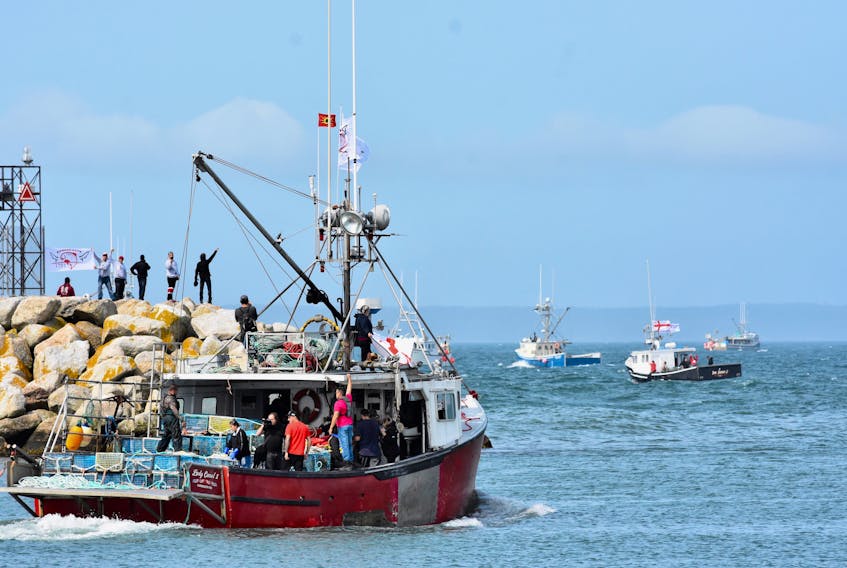Sipekne’katik is challenging provincial regulations that prevent the sale of their moderate livelihood catch.
If successful, a lawsuit filed Monday in Nova Scotia Supreme Court would do an end run around efforts to curtail First Nation moderate livelihood fisheries.
The suit alleges in its statement of claim that the province’s fish buyers’ licensing and enforcement regulations violate the Mi’kmaq treaty right to make a moderate livelihood off resources because they prohibit the purchase or sale of fish caught without a DFO issued commercial licence.
It asks the court to declare the regulations of no force and effect and order the province to pay their legal costs along with damages.
Sipekne’katik claims to have landed 150,000 pounds of lobster under 11 licences it issued to its band members last fall under a self-regulated moderate livelihood fishery.
Premier Stephen McNeil refused to revise provincial regulations to allow for the purchase and sale of moderate livelihood lobster, saying that they would wait on negotiations between the federal government and First Nations.
The negotiations between federal Fisheries Minister Bernadette Jordan and Sipekne'katik chief Mike Sack have broken down.
His community intends to restart their moderate livelihood fishery in St. Mary's Bay this coming spring and numerous other First Nations have stated their intentions to launch moderate livelihood fisheries in the waters around Atlantic Canada as well.
The statement of claim points to the Supreme Court of Canada’s 1999 Marshall decisions, which state that while it is the federal fisheries minister’s duty to regulate the fishery, she has to justify and consult with First Nations on any regulations that constitute an imposition on their right to make a moderate livelihood off a resource.
In the 21 years since the Marshall decision, the federal government has not drafted regulations for and consulted with First Nations on a moderate livelihood fishery. Instead, it has bought over 1,238 commercial licences (10.5 per cent of all existing commercial licences) and turned them over to Atlantic Canada’s First Nations along with training and equipment. Sipekne’katik currently has 37 of the over 1,200 commercial licences provided to Mi’kmaq and Maliseet First Nations, including 15 coveted lobster licences for LFA 34 and LFA 33, swordfish and scallop licences
Sipekne’katik’s lawyer, Gail Gatchalian, argues in her statement of claim that Section 35 of the Constitution means that the onus put on the federal government to justify and consult on the infringement of treaty rights also applies to provincial regulation.
“The Province cannot infringe treaty rights unless it can Justify the incursion for a pressing and substantial public purpose, after appropriate consultation with Sipekne'katik, and if they go no further than is required,” reads the statement of claim.
“The treaty rights of Sipekne'katik and its members are not accommodated in the Regulations. The Province has not sought to Justify restrictions on the purchase of fish from Sipekne'katik moderate livelihood fishers. The Province has not had appropriate consultations with Sipekne'katik about these restrictions.”
The Marshall decision was a bit broader in the justifications it would accept from government for infringing upon the treaty right than is mentioned in the statement of claim.
“The regulatory authority extends to other compelling and substantial public objectives which may include economic and regional fairness, and recognition of the historical reliance upon, and participation in, the fishery by non-aboriginal groups,” reads R vs. Marshall.
“Aboriginal people are entitled to be consulted about limitations on the exercise of treaty and aboriginal rights. The Minister has available for regulatory purposes the full range of resource management tools and techniques, provided their use to limit the exercise of a treaty right can be justified on conservation or other grounds.”
For its part, a provincial government spokesperson said Wednesday that they are not able to comment on the matter because it is now before the courts. They have yet to file a response with the court.









